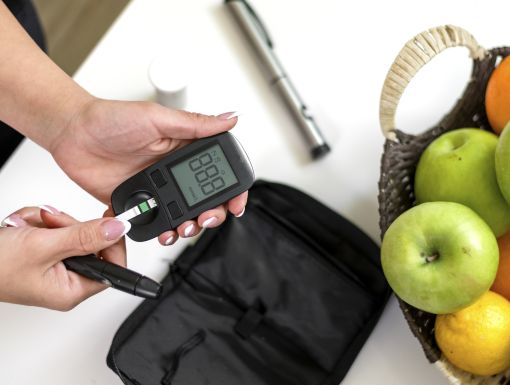
Managing Your Diabetes During the Summer
Many of us look forward to the warmer temperatures that come with summer. However, if you have diabetes, proper planning and special precautions are necessary to ensure a fun-filled summer as the heat can have a large impact on your blood sugar.
Effects of Summer Heat
During summer, it's really important to stay well hydrated. Dehydration highly concentrates the blood, leading to increased blood sugar. As blood sugar levels rise, so too will urination frequency -- resulting in further dehydration. In addition, warmer temperatures can cause blood vessels to dilate, increasing insulin absorption speed and potentially causing lower blood sugar. If you are planning to exercise outdoors or do yard work, this should be done earlier in the day (before 10:00 AM) or later in the day (after 4:00 PM) when outdoor temperatures are cooler.
Pay attention to signs of heat exhaustion which may include dizziness, weakness, nausea, headaches, muscle cramps, cool, clammy skin, and excessive sweating. Keep a water bottle with you and sip on it throughout the day - don’t wait until you’re thirsty!
Want to learn more?
For more information about diabetes management, contact the Ochsner Diabetes Management Program at 504-842-0075.
Protecting Your Medication
The summer heat can impact your diabetes medications and supplies. Heat can cause medications to break down, losing their efficacy and can also damage test strips leading to inaccurate blood sugar readings. Be sure to check your medication’s temperature storage directions (most specify room temperature), and never leave your medications in your car. Note that insulin needs to be kept cool, but not on ice. There are insulin cooling cases that make it easy to travel with temperature-sensitive medications and test strips.
What to Wear
It is important to dress appropriately to help keep you cool, avoid sunburn and foot injury. Aim to wear lightweight and light-colored clothing to help stay cool. To help keep the sun out, wide-brimmed hats and sunglasses really help. Apply sunscreen to protect from sunburn (which can raise blood sugars), and be mindful of the shoes you are wearing. During the summer, we are more tempted to wear open-toe shoes or go barefoot and risk injury. Don’t forget to check your feet at the end of every day!



